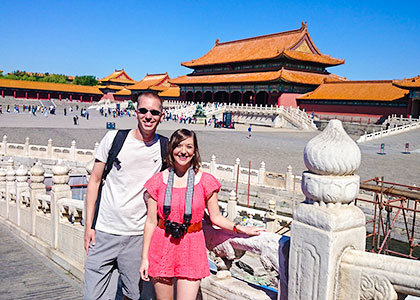1. Tip: Try to negotiate more by starting with a lower price and remaining respectful. Be polite however firm to show you're serious about your business.
Pro: It allows you to determine your position while not offending the seller.
Pro: Starting at an affordable price may frustrate sellers, especially when selling products with lower margins.
2. What is the market value?
Tips: Find out the cost of the item in advance to avoid overpaying.
Pros: Reduces the risk of fraud and builds confidence in negotiations.
Cons: The process of researching can be long, particularly with regard to exclusive or unique products.
3. Show Genuine Enthusiasm
TIP: Sellers might be more inclined than usual to bargain with you if they think you're truly interested in buying.
Pro: Creates a rapport with the client and improves their chance of getting a good price.
Pro: Your excessive enthusiasm may be interpreted as a willingness or a desire to pay more. This can make your position less secure.
4. The most effective way to walk away is to do it strategically
TIP: Remain calm if the price doesn't drop. Sellers usually call back with an offer they think is more favorable.
Pro: A great strategy to get the best possible price.
Cons: This can be detrimental If the seller doesn't wish to lower price, especially for items in high demand.
5. Learn Basic Mandarin Phrases
Tip: Phrases like "Tai gui le!" (Too expensive!) If you can make it cheaper then use "Pianyi" or "Yidian ba?" Show you put in.
Pro: Makes the negotiation more personal, and usually softens the seller's stance.
Con: The use of limited phrases may be detrimental in more complicated negotiations.
6. Be patient and calm
Negotiations can take a while. Be calm to avoid appearing desperate.
The pros: Sellers typically offer higher prices to buyers who are persistent and calm.
Con: It requires time and energy, particularly in markets that are crowded.
7. Bring Cash
If you pay with cash, sellers might be more likely than normal to lower the price of their products.
Pro: Immediate cash offers can result in discounts, particularly with small sellers.
Con: Pickpockets can make it unsafe to carry cash at markets.
8. Discounts on Group Bookings
Request an offer for bulk purchases when buying multiple products.
Pro: You can increase your bargaining skills and score the best deal.
Cons: You may need to buy more items that do not always meet your requirements.
9. Do not be afraid to say No
Tips: Politely decline the offer in the event that the seller is unwilling to agree to lower the price.
Pro: You'll be able to get rid of the buyer's guilt and remain within your budget.
Con: You might not get the item you really desired.
10. Know When Not to Bargain
Department stores or boutiques with high-end prices is not the place to shop.
Pro: Prevents embarrassment and respects the cultural differences.
Limitations on your negotiation options in certain settings
Bargaining in China Bargaining in China: Pros and Cons
Negotiating costs can be a great way to save money.
Cultural Experience: Bargaining is a great way to learn more about the local culture and customs.
Personal Interactions: This builds a an intimate relationship with the local sellers.
Pros and Cons of Bargaining in China
The process of bargaining can take a lot of time, especially for those who aren't experienced.
If you do not have the basic Mandarin, communication may be difficult.
Some find bargaining could be stressful.
Mastering these tips will allow you to haggle confidently in Chinese markets. Read the top plan your journey to this landmark for site info including taishan, eating in urumqi, kashgar tour maps, popular beijing night markets, kashgar tour maps, temple of confucius one of the three largest ancient architectural complexes, xi an travel tips, south luogu laneone of the oldest neighborhoods in beijing, kweichow moutai the best and most famous liquor in china, eating in urumqi and more.

Top 10 Tips For The Best Time To Visit Famous Temples In China
1. Visit During the Off-Season (Autumn/Winter)Tip Think about visiting popular temples in China during the off-season (autumn or winter) usually from November through February. The temperature will be cooler, and there will be fewer visitors.
Pro: It is quieter and provides peace and tranquility.
Cons: It could be colder and less comfortable to go to temples outdoors.
2. Be prepared for weather extremes
The temperature can vary greatly throughout the seasons. The winters can be very cold while summers get scorching. Pack for the weather.
Pros: Your stay will be comfortable and enjoyable because you'll be ready for any weather.
Con: Packing to accommodate the extremes of seasons can be a hassle when you are traveling in a small amount.
3. Visits during the spring and Summertime to view Vibrant Flora
Go to temples in spring and the summer months to admire stunning gardens and flowers in bloom. Also, you can enjoy lush landscapes around the temples.
Pro: Beautiful landscapes enhance the visual experience of visiting the temple grounds.
Con: Summers can be extremely hot and can get crowded.
4. Think about festivals and other special events.
Plan your visit during traditional festivals like Chinese New Year or Mid-Autumn Festival. These festivals permit you to participate in rituals, ceremonies and enjoy the rich culture of the temple.
Pro: The temples typically hold lively traditional events and provide a unique, exciting experience.
Con: Temples can be packed and hotel rates can increase during the festival season.
5. Beware of Peak Holiday Seasons
Avoid visiting temples at the peak tourist season (e.g. Chinese Year of the Pig, Golden Week October) because they could be crowded.
Pros: Peaceful and tranquil visits without crowds. Offers an uplifting experience.
Con: You could be missing out on some of the special festival events that take place during peak times.
6. Make sure to check for Temple Closures during Winter
Check ahead of time. Some temples, especially in northern or remote areas are only open during certain hours or close entirely during winter. Make sure to verify this information.
Cons: You won't waste time and can organize your other activities.
Cons: There could be reduced hours of operation or temples shut completely to allow construction work.
7. Early Morning Visits to the Beach in Summer
Arrive in the early morning if you are visiting during summer to avoid the intense heat at midday. A lot of temples are open early in the morning. The atmosphere is calmer, with fewer tourists.
A more peaceful and cool experience, without the crowds.
Cons: Early wake-up is necessary, and may not be suitable for everyone.
8. Prepare for rain during the summer months.
In the southern part of China, heavy rains can be expected during summer. When visiting in this season take an umbrella or rain gear.
You are able to enjoy the magnificence of the temple even in the event of rain.
Con: Rain can interfere with outdoor activities and can make temples slippery.
9. Fall is the best time to visit mountain temples
TIP: Visit temples located in mountainous areas such as Mount Wutai (or Mount Emei), during autumn. The weather is pleasant and the autumn foliage makes an amazing scene.
Pros: The cooler weather make outdoor activities and hiking more enjoyable. The mountain views are spectacular.
Con: The popular mountain temples are still popular with tourists, especially during weekends or holidays.
10. Take a look at the Lunar Calendar in Specific Cases
Tip: Many temples in China follow the lunar calendar, and certain rituals or occasions are associated with specific lunar dates. It is possible to use the calendar to plan your itinerary and to attend important occasions like the Lantern Festival or Buddha's birthday.
Pro: Unique cultural experiences as well as deeper insights into the spiritual practices of local communities.
Cons: It can take additional planning time and study to align your travel dates with the lunar calendar.
Benefits of a Seasonal Trip to Chinese Temples
Less crowds on trips during off-season are more peaceful and reflective.
Cultural events: These festival events give a greater insight into the local religious and culture customs.
Scenic Beauty: Going to the area during the seasons of spring and autumn may offer stunning landscapes and vibrant gardens around temples.
Cooler weather The autumn and winter months are perfect for exploring temples.
Cons of Visits to Chinese Temples during the season
Unpredictable weather : winter can be cold, while summer may be too hot, which can impact your comfort.
Temple Closures: Some temples close in extreme weather or when they have restricted hours.
At popular events can attract large numbers of people. This makes it difficult to appreciate the temple's tranquil atmosphere.
There are limitations: You could miss out on certain seasonal events or celebrations in the event that your visit falls not within the appropriate timeframe.
You can make your visit to China's temples more memorable and enjoyable by choosing the best season and making plans ahead. Understanding seasonal dynamics is key to making the most out of any trip. Follow the most popular discover this natural wonder for blog tips including naked marriage in china the most fashionable wedding style for the 1980s, south luogu laneone of the oldest neighborhoods in beijing, the song of everlasting sorrow the famous long narrative poem, eating in dunhuang, luoyang peony and wangcheng park, eating in fuzhou, shopping in shangri la, chinese furniture the development history of chinese furniture, entertainment in beijing, four great classical novels.html and more.
